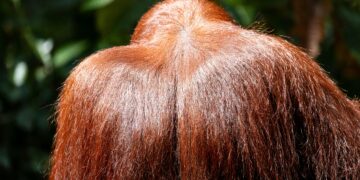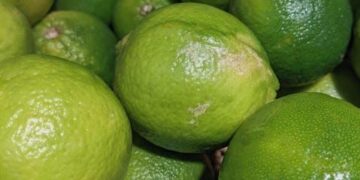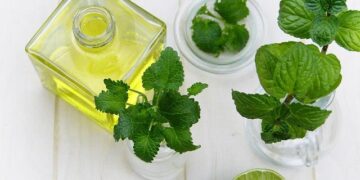Table of Contents
My Breaking Point: When the Textbooks Weren’t Enough
As a medical researcher, I’ve spent years immersed in the elegant architecture of the human body. I understand the cascade of neurotransmitters, the intricate dance of hormones, and the precise pathways of the nervous system. I can map the neurochemistry of anxiety on a whiteboard, detailing the roles of serotonin, GABA, and cortisol with clinical detachment. Yet, for a long time, there was a profound and humbling disconnect between my intellectual knowledge and my lived experience.
My own battle with anxiety wasn’t a neat diagram. It was a visceral, chaotic reality: the 3 a.m. jolt of adrenaline, a heart hammering against my ribs for no discernible reason, and a mind caught in relentless, looping thoughts that I, the researcher who studied the brain, could not silence. The standard advice I gave others and tried to follow myself—mindfulness, exercise, diet—felt like trying to build a sandcastle against a rising tide. It helped, but the waves of unease kept crashing through.
Driven by a desire for something more, something that felt less like a chemical intervention and more like a natural alignment, I turned to herbal medicine. I approached it, however, with the same mindset I used in the lab: the “magic bullet” model. I was looking for a single, natural compound to target a single problem.
My first experiment was with Valerian root, a well-known herbal sedative. I took the capsules as directed, expecting my racing thoughts to quiet down. But the effect was negligible; the mental static persisted, a frustrating outcome echoed in studies where participants reported little to no benefit.1 Undeterred, I moved on to Kava. This time, I felt a more noticeable calming effect, a welcome muffling of the internal noise. But my relief was short-lived. A quick dive into the literature revealed FDA warnings about the risk of serious liver damage, even with short-term use.1 The very thing I had sought for wellness was carrying a significant, and to me, unacceptable risk.
This was my breaking point. It wasn’t just a failure to find a solution; it was a crisis of methodology. I felt disillusioned and frustrated. I had treated these ancient plants like over-the-counter drugs, expecting a simple, predictable result. My experience, combined with the wildly inconsistent user reviews I read—some people hailing a herb as a miracle while others reported side effects or no effect at all—led me to a critical realization.4 The problem wasn’t necessarily the herbs themselves. The problem was my approach. The mixed results in clinical trials and the spectrum of personal experiences weren’t evidence of herbal ineffectiveness; they were evidence that a one-size-fits-all, “magic bullet” paradigm is fundamentally flawed when applied to the complexities of both the human body and botanical medicine. The question wasn’t “What is the best herb for anxiety?” The real question was, “What is the best
approach to using herbs for my specific type of anxiety?” This shift in perspective launched me on a new journey, one that took me far beyond the lab bench and into a much richer, more holistic understanding of healing.
The Gardener’s Epiphany: A New Paradigm for Healing
The turning point in my research—and in my own healing—came from an unexpected place: the principles of ecology and regenerative agriculture. I realized that the conventional approach to anxiety, both pharmaceutical and my own misguided herbal attempts, was like that of a frustrated groundskeeper trying to manage a weed-infested lawn by yanking out or poisoning every weed, one by one. It’s a constant, exhausting battle against symptoms, with no attention paid to the underlying health of the soil.
This led to my epiphany, a new framework for thinking about anxiety and herbal medicine that I call the “Holistic Gardening Approach.” It reframes the entire goal from symptom suppression to cultivating a resilient internal ecosystem.
The Demolition Approach (The Old Paradigm): This is the “magic bullet” mindset. It views anxiety as an isolated problem—a single weed in the garden of the self. The goal is immediate, forceful intervention on that one target. You drop a chemical “bomb” (a powerful drug) or try to yank it out with a single “natural pill” (an herb used without context). This approach ignores the environment in which the weed is thriving. It’s a model of demolition.
The Holistic Gardening Approach (The New Paradigm): This is the framework that transformed my understanding and will guide the rest of this report. It views your mind and body as a garden. Lasting calm and resilience don’t come from just killing weeds. They come from becoming a skilled gardener who understands the entire ecosystem. This approach is built on three foundational pillars:
- Know Your Soil: Before planting anything, a good gardener assesses the soil. Is it acidic or alkaline? Rich in nutrients or depleted? In the same way, we must first map our unique biochemical and energetic landscape to understand the root cause of our personal anxiety.
- Choose the Right Tools: A gardener has many tools—a spade for digging, a watering can for nurturing, a trellis for support. Herbs are our tools. Each one has a specific purpose. We must learn to select the right herb for the right job, based on our soil assessment.
- Follow the Gardener’s Rulebook: Gardening isn’t a free-for-all. There are rules of safety and responsibility. You don’t plant in a hurricane, you watch out for poison ivy, and you know when to call in a professional landscaper. Similarly, using herbs requires a deep respect for safety, an understanding of risks, and a commitment to professional guidance.
This new paradigm offers a profound promise. It moves beyond the frustrating cycle of chasing symptoms and empowers you to cultivate a state of true, sustainable well-being. It respects the deep complexity of your body and the multifaceted nature of these plants, which often work on multiple systems at once to restore balance.6 It is a path to becoming the master gardener of your own inner peace.
Pillar 1: Know Your Soil: Mapping Your Personal Anxiety Blueprint
Before you can effectively use any herbal remedy, you must first understand the unique terrain of your own body and mind. “Anxiety” is not a single entity; it is a symptom, a signal that something in your internal ecosystem is out of balance. Just as a gardener analyzes the soil’s pH, moisture, and nutrient content, we must investigate the root causes of our anxiety. By integrating the diagnostic lenses of modern Functional Medicine with the ancient wisdom of Ayurveda and Traditional Chinese Medicine (TCM), we can create a rich, multi-dimensional “anxiety blueprint” that guides us toward the most effective interventions.
What is remarkable is how these seemingly disparate systems often converge, describing the same underlying physiological patterns with different languages. A diagnosis of “HPA Axis Dysfunction” in Functional Medicine, characterized by being “tired but wired” and having disrupted sleep, mirrors the Ayurvedic concept of “aggravated Vata Dosha” and the TCM pattern of “Heart and Kidney Yin Deficiency”.7 This convergence validates these ancient frameworks with modern science and provides a more complete picture of the individual’s state.
The Functional Medicine Lens: Uncovering the Root Causes
Functional Medicine is the science of “why.” Instead of just naming the disease, it seeks to understand the underlying imbalances that lead to symptoms.10 For anxiety, it provides a biochemical soil analysis, looking for key dysfunctions.
- HPA Axis Dysfunction: The Hypothalamic-Pituitary-Adrenal (HPA) axis is our central stress response system. In a healthy state, it releases cortisol in response to a threat and then returns to baseline. Chronic stress, however, can lead to HPA axis dysfunction, where cortisol levels become dysregulated—often too high when they should be low (at night) and too low when they should be high (in the morning). This leaves you feeling simultaneously exhausted and agitated, the classic “tired but wired” state that is a major driver of anxiety and insomnia.7
- The Gut-Brain Axis: There is a direct and profound communication highway between your gut and your brain. Your gut is home to trillions of bacteria and produces approximately 95% of your body’s serotonin, a key neurotransmitter for mood regulation.12 When the gut microbiome is out of balance (a state called dysbiosis) or the gut lining is inflamed, it sends distress signals to the brain, which can manifest as anxiety, depression, and brain fog.11
- Nutrient Deficiencies: Your brain requires specific nutrients to build calming neurotransmitters and function optimally. Deficiencies in key players are strongly linked to anxiety. These include Magnesium (essential for relaxation), B-vitamins like B6 (a necessary cofactor for producing serotonin and GABA), and Omega-3 fatty acids (which reduce inflammation and support brain health).11
- Hormonal Imbalances: Fluctuations in key hormones can significantly impact mood. An underactive or overactive thyroid can mimic anxiety symptoms. For women, imbalances between estrogen and progesterone, particularly the drop in calming progesterone before menstruation or during perimenopause, can be a potent trigger for anxiety and irritability.11
The Ayurvedic Lens: Understanding Your Energetic Constitution (Dosha)
Ayurveda, the traditional medicine system of India, offers a framework for understanding our innate energetic tendencies, or doshas. While anxiety is most commonly associated with an imbalance in the Vata dosha, it can manifest differently depending on an individual’s unique constitution.15
- Vata Anxiety: This is the classic presentation of anxiety. Vata dosha is governed by the elements of air and ether, and its qualities are light, cold, dry, and mobile. When Vata is aggravated, it manifests as fear, restlessness, racing thoughts, insomnia, and a feeling of being ungrounded and scattered.8
- Pitta Anxiety: Pitta dosha is governed by fire and water, and its qualities are hot, sharp, and intense. Pitta-type anxiety is often driven by a fear of failure and a need for control. It manifests as irritability, impatience, anger, and perfectionism.15
- Kapha Anxiety: Kapha dosha is governed by earth and water, with qualities that are heavy, slow, and stable. When Kapha is imbalanced, it can lead to a type of anxiety characterized by lethargy, emotional withdrawal, attachment, and a sense of heaviness or stagnation.15
The Traditional Chinese Medicine (TCM) Lens: Identifying Patterns of Disharmony
In TCM, emotions and physical health are inextricably linked. Anxiety is not seen as a brain-only phenomenon but as a symptom of a deeper pattern of disharmony within the body’s organ and meridian systems.17
- Liver Qi Stagnation: This is perhaps the most common pattern related to modern stress. The Liver is responsible for the smooth flow of Qi (vital energy) throughout the body. When stress, frustration, or repressed anger obstructs this flow, it leads to “stagnation.” This manifests as irritability, tension in the neck and shoulders, mood swings, a feeling of a lump in the throat, and anxiety that is rooted in frustration.9
- Heart Blood/Yin Deficiency: In TCM, the Heart houses the Shen, or spirit. When the Heart is not properly nourished by Blood and Yin (the cooling, moistening aspects of the body), the Shen becomes unsettled. This pattern leads to palpitations, insomnia (especially difficulty falling asleep), poor memory, and a feeling of being easily startled or vaguely anxious without a clear cause.9
- Kidney and Heart Disharmony: The Kidneys are the source of the body’s fundamental Yin and Yang (water and fire). The Heart is associated with fire. When Kidney Yin is depleted, it can no longer control Heart Fire, leading to a state of imbalance. This pattern often manifests as anxiety with night sweats, restlessness, a feeling of heat in the evening, and a deep-seated fear.9
By exploring these three lenses—ideally with a qualified practitioner from each discipline—you can move beyond a generic label of “anxiety” and create a detailed, personalized blueprint that will guide you to the most effective and appropriate herbal and lifestyle interventions.
Pillar 2: The Herbal Toolkit: Choosing the Right Plant for the Right Purpose
Once you have a clearer map of your personal anxiety blueprint, you can begin to assemble your herbal toolkit. In our gardening analogy, this is where we move from assessing the soil to selecting the right tools for the job. It’s crucial to understand that herbs are not interchangeable “anxiety pills.” Each plant has a unique personality, a specific mechanism of action, and is best suited for a particular type of imbalance. We will organize our toolkit into two primary categories: the “Grounders,” which build long-term resilience, and the “Soothers,” which offer more immediate calm.
Category 1: The Grounders (Adaptogens for Building Soil Resilience)
Adaptogens are the soil conditioners of the herbal world. They don’t just provide temporary relief; they work over time to enhance the body’s resilience to stress, primarily by modulating the HPA axis and regulating cortisol levels.8 They are the foundation of a long-term strategy for managing chronic stress and anxiety.
Key Herb: Ashwagandha (Withania somnifera)
- Evidence: Ashwagandha is one of the most well-researched adaptogens for anxiety. Multiple clinical trials have demonstrated its ability to significantly reduce symptoms of stress and generalized anxiety, with studies showing a measurable reduction in serum cortisol levels compared to placebo.13 The evidence is strong enough that some professional organizations provisionally recommend it for Generalized Anxiety Disorder (GAD).20
- Mechanism: Its primary action is as an adaptogen, helping to normalize the body’s stress response via the HPA axis. By lowering elevated cortisol, it helps pull the body out of a chronic “fight-or-flight” state.13
- Best For: Ashwagandha is the quintessential herb for the Vata Anxiety or HPA Axis Dysfunction blueprint. It is ideal for individuals who feel chronically stressed, overwhelmed, “tired but wired,” and suffer from anxiety-related insomnia.8
- Forms & Dose: It is most commonly taken in capsules containing a standardized root extract, with effective doses in studies ranging from 300-600 mg per day, sometimes up to 1000 mg.13 It is also available as a powder to be added to drinks or as a liquid tincture.23
- User Experience Nuance: The varied user reviews for ashwagandha perfectly illustrate the principle of bio-individuality. While many users report a profound sense of calm and improved sleep, a minority experience adverse effects like headaches, digestive upset, or even increased anxiety.4 This underscores why “knowing your soil” is paramount; what grounds one person may be unsuitable for another.
Category 2: The Soothers (Nervines for Calming Acute Flare-Ups)
Nervines are the “watering cans” of our garden. They act more directly on the nervous system to provide faster relief from acute feelings of anxiety, restlessness, and tension. Many of them work by modulating the activity of GABA, the brain’s primary inhibitory (calming) neurotransmitter.19
Key Herb: Lavender (Lavandula angustifolia)
- Evidence: The clinical evidence for lavender, particularly an oral preparation of lavender oil called Silexan, is remarkably strong. Multiple high-quality, double-blind, placebo-controlled trials have found that an 80 mg daily dose of Silexan is as effective as the benzodiazepine lorazepam and the SSRI paroxetine for treating GAD, but with a more favorable side effect profile.26 Aromatherapy with lavender has also been shown to significantly reduce acute anxiety in various settings, such as dental offices and during childbirth.29
- Mechanism: Lavender appears to work through multiple pathways. Its primary active compound, linalool, seems to produce its calming effects by activating olfactory neurons in the nose, which in turn modulate GABAergic pathways in the brain—a unique mechanism that calms without causing significant sedation or motor impairment.31 It also helps calm the parasympathetic nervous system, lowering heart rate and adrenaline levels.29
- Best For: Lavender is a versatile soother for acute anxiety. Its cooling and tension-relieving properties make it an excellent choice for Pitta-type anxiety (calming irritability and intensity) and for relieving the physical tension associated with Liver Qi Stagnation.
- Forms & Dose: The most evidence-backed form is oral capsules of a specific lavender oil preparation (Silexan) at 80 mg per day.29 Aromatherapy via diffusion (at least 10 minutes) and calming teas are also effective methods for more immediate, short-term relief.29
Key Herb: Chamomile (Matricaria recutita)
- Evidence: Chamomile is far more than just a gentle bedtime tea. A growing body of clinical research supports its use for anxiety. Multiple randomized controlled trials have confirmed that chamomile extract is effective in reducing symptoms of mild to moderate GAD.19 Furthermore, long-term studies suggest it is safe and may help prevent relapse in those who respond to it.34
- Mechanism: Chamomile’s anxiolytic effects are largely attributed to a flavonoid called apigenin. Apigenin binds to the same benzodiazepine receptors in the brain that drugs like Valium target, producing a similar, albeit much milder, calming effect.13
- Best For: Chamomile is a gentle, broadly applicable nervine. It is particularly well-suited for anxiety that is accompanied by digestive upset (a common Vata sign) or sleep disturbances. In TCM terms, it helps to calm an unsettled Shen and is a good fit for the Heart Blood Deficiency pattern.
- Forms & Dose: Chamomile can be taken as a tea (infusing 2-4 grams of dried flowers per cup), in capsules (studies have used doses up to 1,500 mg daily), or as a liquid tincture.24
Other Notable Soothers
- Lemon Balm (Melissa officinalis): Traditionally known as the “gladdening herb,” lemon balm is excellent for anxiety characterized by nervous excitability, worry, and restlessness.1 Studies show it can improve mood and cognitive function, likely through interactions with GABA receptors.37
- Passionflower (Passiflora incarnata): Research suggests passionflower can be effective for GAD, with fewer side effects than some prescription sedatives.1 It is believed to work by boosting GABA levels in the brain.25
- Saffron (Crocus sativus): Emerging research shows that saffron supplements can significantly reduce anxiety symptoms and lower levels of the stress hormone cortisol.27 It is a promising herb that appears to have both anxiolytic and antidepressant effects.39
To help you navigate these options, the following table provides a quick-reference guide to our herbal toolkit.
| Herb Name | Primary Function | Best For (Anxiety Blueprint) | Evidence Level | Common Forms | Key Safety Note |
| Ashwagandha | Adaptogen / Grounder | HPA Axis Dysfunction, Vata Anxiety (chronic stress, fatigue, feeling “wired”) | Strong Clinical | Capsules, Powder, Tincture | Avoid in pregnancy and with nightshade allergies. Can interact with thyroid and sedative medications.22 |
| Lavender | Nervine / Soother | GAD, Pitta Anxiety, Liver Qi Stagnation (acute anxiety, irritability, tension) | Strong Clinical (Oral) | Oral Capsules (Silexan), Aromatherapy, Tea | Oral use can cause GI upset. Avoid oral use in children/teens due to potential hormonal effects.1 |
| Chamomile | Nervine / Soother | GAD, Vata Anxiety, Heart Blood Deficiency (mild-moderate anxiety, sleep issues, digestive upset) | Strong Clinical | Tea, Capsules, Tincture | Can increase bleeding risk with anticoagulants. Potential for allergic reaction in those sensitive to the ragweed family.1 |
| Lemon Balm | Nervine / Soother | Vata Anxiety (nervous excitability, worry, restlessness) | Promising | Tea, Capsules, Tincture | Generally very safe for short-term use. May interact with thyroid medications.1 |
| Passionflower | Nervine / Soother | GAD (generalized worry, nervous tension) | Promising | Tea, Capsules, Tincture | Can cause dizziness and confusion in some. Avoid in pregnancy and breastfeeding.1 |
| Saffron | Nervine / Soother | Anxiety with Depressive Features | Promising | Capsules (extract) | Generally well-tolerated, but high doses can be toxic. Purchase from a reputable source to avoid adulteration.27 |
Pillar 3: The Gardener’s Rulebook: A Masterclass in Safety and Responsibility
This is the most important pillar of the Holistic Gardening paradigm. Using potent botanical tools without a deep understanding of safety is like gardening blindfolded in a field mixed with roses and poison ivy. You might get lucky, or you might end up with a serious problem. The allure of “natural” cannot be a substitute for rigorous diligence and responsibility. This rulebook outlines the non-negotiable safety protocols for navigating the world of herbal medicine.
Rule 1: Acknowledge the Terrain – The Wild West of Supplements
The single most critical fact to understand is that in the United States, the Food and Drug Administration (FDA) regulates herbal supplements as foods, not as drugs.42 This has profound implications for your safety. Unlike pharmaceutical drugs, herbal products are not required to undergo pre-market testing to prove their purity, potency, efficacy, or safety.42 This lack of oversight creates a “Wild West” marketplace with significant potential dangers.
- The Dangers of an Unregulated Market:
- Contamination: Products can be contaminated with dangerous substances like heavy metals (lead, mercury, arsenic), pesticides, or microbes from poor agricultural or manufacturing practices.43
- Adulteration: In some shocking cases, herbal supplements have been found to be secretly adulterated with unlisted prescription drugs to make the product seem more effective, posing a massive risk to unsuspecting consumers.43
- Inconsistent Potency: The amount of active compounds in an herb can vary dramatically based on growing conditions, harvest time, and processing methods. This means the dose you get from one bottle might be vastly different from the next, making consistent and safe results nearly impossible to achieve.45
- Liver Toxicity: There is a documented and increasing number of cases of liver damage and even liver failure linked to supplements.3 While any substance can be problematic, specific concerns have been raised about high-dose turmeric/curcumin extracts, green tea extract, and especially Kava, which carries explicit warnings about potential hepatotoxicity.1
- The Solution: Demand Third-Party Verification: To navigate this terrain safely, you must become a discerning consumer. Do not trust a product simply because it has a slick label or is sold at a health food store. Look for supplements that have been independently verified by a third-party organization like USP (United States Pharmacopeia), NSF International, or ConsumerLab.com. These seals of approval indicate that the product has been tested to confirm that it contains what the label says it contains, is free of contaminants, and has been manufactured according to good practices.20
Rule 2: Identify the Poison Ivy – Critical Herb-Drug Interactions
The statement “natural doesn’t always mean safe” is most true when it comes to interactions with conventional medications.46 Herbs contain powerful bioactive compounds that can interfere with how your body absorbs, metabolizes, and eliminates prescription drugs, leading to dangerous consequences.44
- High-Alert Interactions:
- St. John’s Wort (Hypericum perforatum): This is the most notorious example and a critical one to understand. St. John’s Wort is a potent inducer of the cytochrome P450 enzyme system in the liver, which is responsible for breaking down a vast number of medications. By speeding up this system, it can cause drugs to be cleared from your body too quickly, rendering them ineffective. This applies to critical medications including oral contraceptives, blood thinners (warfarin), heart medications (digoxin), and immunosuppressants (cyclosporine).45 Furthermore, when combined with
antidepressants (SSRIs), it can lead to a potentially life-threatening condition called serotonin syndrome.48 - Sedative Herbs (Kava, Valerian): These herbs can have an additive effect with other central nervous system depressants. Combining them with benzodiazepines, barbiturates, sleep medications, or alcohol can lead to excessive drowsiness and dangerously slowed breathing.1
- Herbs Affecting Bleeding: Several herbs have blood-thinning properties. Combining them with anticoagulant or antiplatelet drugs (like warfarin, aspirin, or clopidogrel) can significantly increase the risk of serious bleeding. Key herbs to watch for are Chamomile (especially at high doses), Ginkgo biloba, and Ginseng.1
This is not an exhaustive list. The following table highlights some of the most critical interactions to be aware of.
| Herb | Interacts With (Drug Class / Specific Drug) | Potential Outcome |
| St. John’s Wort | Antidepressants (SSRIs), Oral Contraceptives, Blood Thinners (Warfarin), Immunosuppressants (Cyclosporine), Heart Medication (Digoxin) | Serotonin Syndrome (with SSRIs); Decreased effectiveness of all other listed drugs 45 |
| Kava | Benzodiazepines, Barbiturates, Alcohol, other CNS Depressants | Excessive sedation, dangerously slowed breathing, increased risk of liver damage 1 |
| Valerian | Benzodiazepines, Barbiturates, Alcohol, other CNS Depressants | Increased sedative effects, excessive drowsiness 36 |
| Chamomile | Blood Thinners (Warfarin), Sedatives | Increased risk of bleeding; may increase sedative effects 1 |
| Ginkgo Biloba | Blood Thinners (Warfarin, Aspirin), Antidepressants (MAOIs) | Increased risk of bleeding; potential for adverse effects with MAOIs 43 |
| Ginseng | Blood Thinners (Warfarin), Diabetes Medications | Increased risk of bleeding; may cause hypoglycemia 43 |
Rule 3: Know When Not to Plant – Contraindications
Even if an herb is pure and doesn’t interact with your medications, there are certain life stages and health conditions where its use is contraindicated.
- Pregnancy and Breastfeeding: The safety of most herbs has not been established in these populations. Many should be avoided out of an abundance of caution. Some, like Sage or Blue Cohosh, are known to be uterotonic (can stimulate uterine contractions) and must be strictly avoided during pregnancy.1
- Before Surgery: Many common herbs must be discontinued at least two weeks prior to any surgical procedure. This is to avoid dangerous interactions with anesthesia or to prevent excessive bleeding. Herbs on this list include Ginkgo, Garlic, Ginseng, St. John’s Wort, Kava, and Valerian.43
- Hormone-Sensitive Conditions: Individuals with conditions like breast or uterine cancer should be cautious with herbs that have estrogen-like properties, such as Hops or Soy.47 There are also concerns about oral lavender use in prepubescent children due to rare reports of hormonal disruption.1
Rule 4: Hire a Head Gardener – The Non-Negotiable Need for Professional Guidance
Given the complexity of mapping your anxiety blueprint, the unregulated nature of the supplement industry, and the serious risks of interactions and contraindications, one rule stands above all others: do not self-diagnose and do not self-prescribe.42
The purpose of this report is to make you an educated, empowered patient, not to replace the essential role of a qualified healthcare professional. Your journey with herbal medicine should be a partnership. Seek guidance from a professional with expertise in this area, such as:
- A medical doctor (MD) or naturopathic doctor (ND) with training in botanical medicine.
- A licensed acupuncturist and herbalist (L.Ac) trained in Traditional Chinese Medicine.
- A registered or clinical herbalist with extensive training and credentials.
These professionals can help you get an accurate diagnosis, screen for potential drug-herb interactions, recommend high-quality products, and create a safe, personalized, and holistic treatment plan that is right for you.42
Conclusion: Cultivating Your Calm
My journey with anxiety, which began in a state of frustrated confusion, has led me to a place of profound clarity and sustainable calm. The “magic bullet” I was searching for in a bottle was a mirage. The real solution wasn’t a product; it was a process. It was the shift from the “Demolition Approach” to the “Holistic Gardening Approach” that finally allowed me to heal.
My personal success story is built on the pillars I’ve shared with you. After working with practitioners to map my own “soil”—identifying a classic pattern of HPA axis dysfunction and Vata imbalance—I was able to build a personalized and effective toolkit. Today, I use Ashwagandha not as a quick fix, but as a long-term adaptogen to build my resilience to stress. For those acute moments when the tide of unease begins to rise, a warm cup of lavender or chamomile tea serves as my gentle, reliable soother. These herbs are woven into a larger tapestry of lifestyle practices—a nutrient-dense diet, consistent sleep, and daily meditation—that nourish my entire internal ecosystem. I no longer battle my anxiety; I tend to my garden.
The path to managing anxiety with herbal medicine is not a shortcut. It is a commitment to becoming a knowledgeable, patient, and responsible gardener of your own well-being. It begins not with a trip to the supplement aisle, but with a decision to understand yourself more deeply.
As you move forward, I urge you to embrace this gardener’s path. Remember the three core pillars:
- Start by Mapping Your Soil: Work with a qualified professional to understand the unique root causes of your anxiety. Don’t settle for a generic label when you can have a personalized blueprint.
- Choose Your Tools Deliberately: Select herbs not based on hype, but on how well they match your specific blueprint. Use adaptogens to build resilience and nervines to soothe acute symptoms.
- Always Follow the Gardener’s Rulebook: Prioritize safety above all else. Choose third-party tested products, be vigilant about drug interactions, respect contraindications, and never, ever go it alone.
The peace you are seeking is not in a single bottle. It is in the wisdom you cultivate, the care you practice, and the resilient, vibrant inner garden you choose to grow, day by day.
Works cited
- Herbal treatment for anxiety: Is it effective? – Mayo Clinic, accessed on August 8, 2025, https://www.mayoclinic.org/diseases-conditions/generalized-anxiety-disorder/expert-answers/herbal-treatment-for-anxiety/faq-20057945
- Medicinal Plants Used for Anxiety, Depression, or Stress Treatment: An Update – PMC, accessed on August 8, 2025, https://pmc.ncbi.nlm.nih.gov/articles/PMC9500625/
- Can supplements cause liver failure? Top US doctor reveals THESE safety tips, accessed on August 8, 2025, https://timesofindia.indiatimes.com/life-style/health-fitness/health-news/can-supplements-cause-liver-failure-top-us-doctor-reveals-these-safety-tips/articleshow/123134406.cms
- Customer reviews for Nature’s Bounty Anxiety & Stress Relief Ashwagandha KSM-66, Dietary Supplement, Tablets, 90 Ct | Walmart.com, accessed on August 8, 2025, https://www.walmart.com/reviews/product/794294962
- ASHWAGANDHA Reviews and User Ratings: Effectiveness, Ease of Use, and Satisfaction, accessed on August 8, 2025, https://www.webmd.com/vitamins-supplements/ingredientreviewpost-953-ASHWAGANDHA.aspx?post=new&drugid=953&drugname=ASHWAGANDHA&appId=8
- Herbal Medicine for Anxiety, Depression and Insomnia – PMC – PubMed Central, accessed on August 8, 2025, https://pmc.ncbi.nlm.nih.gov/articles/PMC4790408/
- A Functional Medicine Approach to Anxiety: Testing, Nutrition, & Supplements – Rupa Health, accessed on August 8, 2025, https://www.rupahealth.com/post/a-functional-medicine-approach-to-anxiety
- A Guide to Balancing Anxiousness with Ayurveda – Banyan Botanicals, accessed on August 8, 2025, https://www.banyanbotanicals.com/pages/ayurvedic-cultivating-calm
- 6 Chinese Herbs often prescribed for Anxiety, Plus Self-Care Tips – Treasure of the East, accessed on August 8, 2025, https://treasureoftheeast.com/blogs/resources-education/chinese-herbs-for-anxiety
- Functional Medicine For Anxiety & Depression in Bloomington, IN, accessed on August 8, 2025, https://www.paragondrs.com/depression-anxiety/
- How Functional Medicine Helps With Anxiety | TexasCIP, accessed on August 8, 2025, https://texascip.com/how-functional-medicine-helps-with-anxiety/
- Functional Medicine for Anxiety, accessed on August 8, 2025, https://rootfunctionalmedicine.com/functional-medicine-for-anxiety
- 8 Supplements that Can Help Reduce Anxiety, According to a Psychiatrist | Jefferson Health, accessed on August 8, 2025, https://www.jeffersonhealth.org/your-health/living-well/8-supplements-that-can-help-reduce-anxiety-according-to-a-psych
- Nutraceuticals for Managing Anxiety: An Evidence-Based Guide – Delta Psychology, accessed on August 8, 2025, https://www.deltapsychology.com/psychology-ponderings/nutraceuticals-for-managing-anxiety-an-evidence-based-guide
- Ayurvedic Solutions for Stress and Anxiety – Amal Tamara, accessed on August 8, 2025, https://amaltamara.com/ayurvedic-solutions-for-stress-and-anxiety/
- Alleviating Anxiety With An Ayurvedic Approach, accessed on August 8, 2025, https://theayurvedicclinic.com/alleviating-anxiety-with-an-ayurvedic-approach/
- Traditional Chinese Medicine for Anxiety | ACA Acupuncture and Wellness, accessed on August 8, 2025, https://acaacupuncture.com/traditional-chinese-medicine-for-anxiety/
- Traditional Chinese Medicine for Depression and Anxiety | Frontiers Research Topic, accessed on August 8, 2025, https://www.frontiersin.org/research-topics/42525/traditional-chinese-medicine-for-depression-and-anxiety/magazine
- Herbs for anxiety: Does it work? Plus 9 calming options – Medical News Today, accessed on August 8, 2025, https://www.medicalnewstoday.com/articles/herbs-for-anxiety
- Benefits of Ashwagandha and How Much To Take – Cleveland Clinic Health Essentials, accessed on August 8, 2025, https://health.clevelandclinic.org/what-is-ashwagandha
- Ashwagandha: Is it helpful for stress, anxiety, or sleep? – Health Professional Fact Sheet, accessed on August 8, 2025, https://ods.od.nih.gov/factsheets/Ashwagandha-HealthProfessional/
- ASHWAGANDHA: Overview, Uses, Side Effects, Precautions, Interactions, Dosing and Reviews – WebMD, accessed on August 8, 2025, https://www.webmd.com/vitamins/ai/ingredientmono-953/ashwagandha
- Herbal Remedies For Anxiety and Panic Attacks – Aviva Romm, MD, accessed on August 8, 2025, https://avivaromm.com/7-herbs-anxiety/
- 10 Healing Herbs with Medicinal Benefits – Verywell Health, accessed on August 8, 2025, https://www.verywellhealth.com/healing-herbs-5180997
- How to Use Herbs for Anxiety and Stress – Healthline, accessed on August 8, 2025, https://www.healthline.com/health/mental-health/herbs-for-stress-recipe
- Traditional Herbal Remedies Used for Managing Anxiety and Insomnia in Italy: An Ethnopharmacological Overview – MDPI, accessed on August 8, 2025, https://www.mdpi.com/2311-7524/7/12/523
- 10 Natural Remedies and Supplements Proven by Science to Help Treat Anxiety, accessed on August 8, 2025, https://scitechdaily.com/10-natural-remedies-and-supplements-proven-by-science-to-help-treat-anxiety/
- Does Lavender Help With Anxiety? – Consensus Academic Search Engine, accessed on August 8, 2025, https://consensus.app/questions/does-lavender-help-anxiety/
- How to Use Lavender to Calm Your Anxiety – Healthline, accessed on August 8, 2025, https://www.healthline.com/health/anxiety/lavender-for-anxiety
- Anxiety-Reducing Effects of Lavender Essential Oil Inhalation: A Systematic Review – MDPI, accessed on August 8, 2025, https://www.mdpi.com/2227-9032/11/22/2978
- Does lavender really help with anxiety? – Medical News Today, accessed on August 8, 2025, https://www.medicalnewstoday.com/articles/323422
- Chamomile for anxiety – Study Summary – Examine.com, accessed on August 8, 2025, https://examine.com/research-feed/study/dGzpY9/?requirelogin=1
- (PDF) The Effect of Oral Chamomile on Anxiety: A Systematic Review of Clinical Trials, accessed on August 8, 2025, https://www.researchgate.net/publication/380848740_The_Effect_of_Oral_Chamomile_on_Anxiety_A_Systematic_Review_of_Clinical_Trials
- Chamomile – The ASCO Post, accessed on August 8, 2025, https://ascopost.com/issues/may-10-2018/chamomile/
- Study Details | Long Term Chamomile Therapy for Anxiety – ClinicalTrials.gov, accessed on August 8, 2025, https://www.clinicaltrials.gov/study/NCT01072344?term=CHAMOMILE&rank=2
- Botanical Medicines to Support Healthy Sleep and Rest – Whole Health Library – VA.gov, accessed on August 8, 2025, https://www.va.gov/WHOLEHEALTHLIBRARY/tools/botanical-medicines-healthy-sleep-rest.asp
- Anti-Stress Effects of Lemon Balm-Containing Foods – PMC – PubMed Central, accessed on August 8, 2025, https://pmc.ncbi.nlm.nih.gov/articles/PMC4245564/
- Nutritional and herbal supplements for anxiety and anxiety-related disorders: systematic review – PMC – PubMed Central, accessed on August 8, 2025, https://pmc.ncbi.nlm.nih.gov/articles/PMC2959081/
- Herbal Medicine for Depression and Anxiety: A Systematic Review with Assessment of Potential Psycho-Oncologic Relevance – PubMed Central, accessed on August 8, 2025, https://pmc.ncbi.nlm.nih.gov/articles/PMC5938102/
- 11 Tonic Herbs for Stress and Anxiety – Chestnut School of Herbal Medicine, accessed on August 8, 2025, https://chestnutherbs.com/tonic-herbs-for-stress-and-anxiety/
- Lemon Balm – LiverTox – NCBI Bookshelf, accessed on August 8, 2025, https://www.ncbi.nlm.nih.gov/books/NBK600583/
- Herbal Medicine, accessed on August 8, 2025, https://www.hopkinsmedicine.org/health/wellness-and-prevention/herbal-medicine
- Clinical Implications of Herbal Supplements in Conventional Medical Practice: A US Perspective – PMC, accessed on August 8, 2025, https://pmc.ncbi.nlm.nih.gov/articles/PMC9375827/
- Self-medication with nutritional supplements and herbal over-thecounter products – PMC, accessed on August 8, 2025, https://pmc.ncbi.nlm.nih.gov/articles/PMC4131654/
- Herbal medicine | Better Health Channel, accessed on August 8, 2025, https://www.betterhealth.vic.gov.au/health/conditionsandtreatments/herbal-medicine
- Dangers of Self-Medicating: Expert Warns on Herbal Remedies – Innovations Report, accessed on August 8, 2025, https://www.innovations-report.com/health-life/health-and-medicine/report-33198/
- Herb-Drug Interactions: What the Science Says | NCCIH, accessed on August 8, 2025, https://www.nccih.nih.gov/health/providers/digest/herb-drug-interactions-science
- Taking sertraline with other medicines and herbal supplements – NHS, accessed on August 8, 2025, https://www.nhs.uk/medicines/sertraline/taking-sertraline-with-other-medicines-and-herbal-supplements/
- Some Herbal Supplements May Interact Badly with Prescription Meds, Study Finds, accessed on August 8, 2025, https://www.additudemag.com/herbal-supplements-prescription-medication-interactions/
- Herbs for Anxiety Mini Reference | Integrated Counseling and Wellness, accessed on August 8, 2025, https://integratedcounselingandwellness.com/herbs-for-anxiety-mini-reference/






